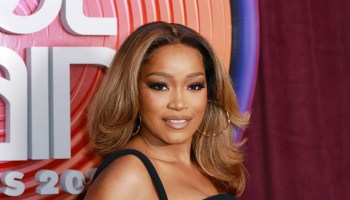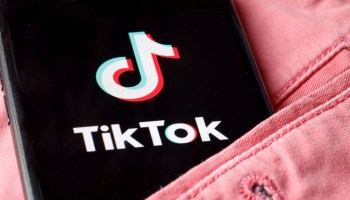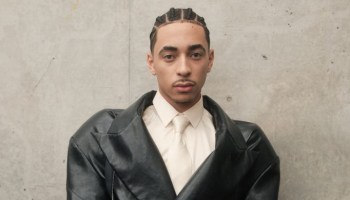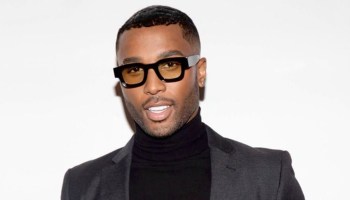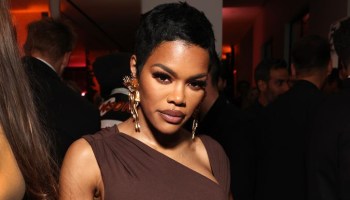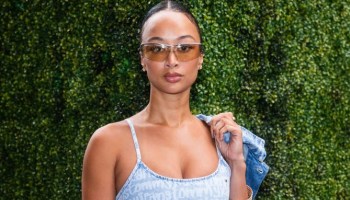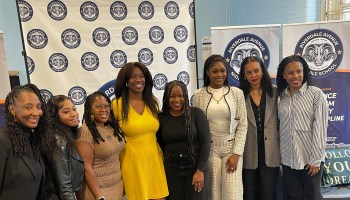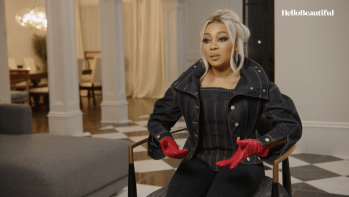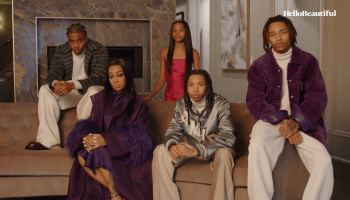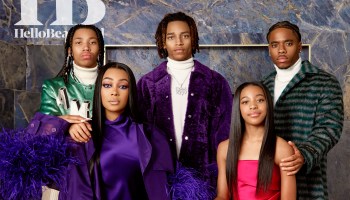Recently, civil rights activist, Reverend Jesse Jackson pressured Twitter to publicly release the gender and ethnic breakdown on its employees. Jackson has succeeded in getting major Internet companies — Google, Facebook, LinkedIn, Yahoo and most recently Twitter — to release reports that show what we already know, Black people are barely represented in the tech industry and we’re highly represented in social media.
Black people have created a community online that has always existed offline–Black Twitter. Black People use Twitter at higher rates than other ethnic groups. According to a study by the Pew Research Center, more than a quarter of all Black Internet users are on Twitter and despite making viable contributions to the larger culture, we’re not represented in Twitter’s corporate office. Only one percent of Twitter’s tech workforce and two percent of its overall workforce is African-American.
“Releasing this data is just the beginning of our quest for equality. We are over-indexed on Twitter as users, and we are under-indexed as employees,” Jackson said. The technology industry is overwhelming male, white and Asian. So maybe, just maybe, the civil rights activists who are demanding Twitter’s gender and ethnic breakdowns have the Black Twitter conversation wrong. We don’t need to see these numbers to start a dialogue around capitalizing on Black Twitter. We don’t have to work at Google, Twitter and Yahoo just to prove we can yield a paycheck from our brilliant tweets.
MUST READ: 5 Reasons Black People Use Instagram & Twitter More Than Anyone Else
“We come not to disrupt but to fulfill the promise of social media,” Jackson said in an interview. What is the promise of social media? We cannot force companies to hire us just because we’re hilarious, insightful or supportive in 140 characters or less. I get where Jesse Jackson is going with his forceful request, but I think it’s pointless. There’s a reason Twitter doesn’t want us seeing those numbers. And having the information will not make Twitter hire more people of color. You know what will? Creating clever hashtags around it and getting Black Twitter to rally around it in hilarious tweets.
CEO of Walker & Company Brands, Tristan Walker says, “Our ability to affect culture is incredibly profound. If we can take that consumerism and encourage us to be producers, while the demographic shift is already happening, in 10 years without anyone doing anything, something is going to change. More specifically, if you look at 15 years ago, the cover of Wall Street Journal, page 81, when they were talking about technology companies, they were talking about things we couldn’t touch. Systems, semantics, like what are those? Today, it’s like Groupon, Foursquare, Facebook–technologies that we can touch. Now, it’s up to the companies to figure out ways by which we can accelerate it.” That tactic worked after Twitter became public and outrage simmered around their lack of women, so they hired Dame Marjorie Scardino.
Black Twitter is one part activist, one part entertainment and one part pop culture commentary. It is its own society within Twitter, saturated in inside jokes, hashtags and rules, centered on the interests of young Blacks online — almost a quarter of all Black Internet users are on Twitter. The hilarious, supportive and taking to task conversations that start on Black Twitter have grown to influence national dialogue and impact the community.
Black Twitter shut down George Zimmerman trial juror B37 when she tried to ink a book deal about her experience serving on the jury. Black Twitter took Paula Deen to task after finding out about her racist indiscretions. They created a hashtags #PaulasBestDishes #PaulaDeenTVShows and #PaulaDeenApologyBingo to make comedic commentary about her racism, at her expense. When controversial “feminist” Hugo Schwyzer had a very public meltdown on Twitter, the result was a hugely important conversation on prejudice and privilege within the world of feminism, tagged with #solidarityisforwhitewomen. Started by writer Mikki Kendall, the conversation was sparked by what many Black women felt was the dismissing of their issues by White women coming to Schwyzer’s defense.
In short, Black Twitter is a cultural force. That is why Reverend Jesse Jackson and many other civil rights leaders want to crack the racial glass ceiling that keeps people of color from being represented at this top media jobs. Jesse Jackson says that after Twitter complies with the proper paperwork, he will be looking to tech companies to set goals and timetables for hiring more people of color. Tristan Walker says, “This is why I reach out to venture capitalists and say, women and people of color first [when I am hiring] because you’re going to block that implicit bias over their head. I’m a company that does it and you see those results happen internally. If we have a conversation about implicit bias, things will change drastically.”
MUST READ: Inquiring About Membership? 10 Hilarious Tips From The #BlackTwitterWelcomeManual
Rashad Robinson, executive director of ColorOfChange, said Twitter has an obligation to be “transparent and clear with the community that has helped them grow.” That, I can agree with. “We are not going to stand by and be silent while Twitter continues to benefit and grow off the creativity, the ideas and the engagement from our community while we are being shut out from the economic growth and opportunities that come with that,” Robinson said. This is the conversation we should be having. How can we make dollar out of our sense?
Popular Vlogger and online personality, Franchesca Ramsey (@Chescaleigh) says of her online fame, “My Twitter success was purely accidental. When ‘Sh*t White Girls Say To Black Girls‘ went viral in 2012, I gained a few thousand followers in a few days. I mostly use Twitter as away to promote my videos/blog, but most importantly to have conversations about stories and issues that are important to me. While I rarely tweet sponsored content, I’ve made lots of great business contacts and gotten some amazing job opportunities (TV appearances, conferences, speaking gigs) because of my Twitter presence.”
It’s not like the powers that be at Twitter don’t recognize our impact. We don’t have to kick and scream to get their attention. We have it. We just need to be a bit more strategic with how we use it. Franchesca says, “When it comes to using Twitter as a promotional tool, the best advice is to start conversations. I see too many people only promoting themselves and not engaging with their followers. If all you tweet about is what you’re eating, inside jokes and selfies, I’m not following you. A good timeline has balance, I’d say 20 percent should be about you and then 80 percent is everything else. Retweets are the the best/easiest way to gain followers, so try crafting tweets that people will want to share. Lastly, talk about what’s trending and use hashtags. Chiming in on trending hashtags is a great way to get exposure and gain followers.” And this is the formula for making a profit from your tweets.
“The broader principle of taking prejudice against you and making it utterly indefensible by ridiculing it,” said Jelani Cobb, director of the Institute for African American Studies at the University of Connecticut, and creator of #PoliticosBlackIntellectuals. “People saw it as so antiquated that the perfect response was humor. Almost like ‘The Producers.’ The ultimate gesture of contempt is to laugh.” That’s exactly what Franchesca did and it gained the attention of over 11 million viewers!
Kimberly C. Ellis, who has a doctorate in American and Africana Studies and tweets as @drgoddess, is studying Black Twitter for her upcoming book, The Bombastic Brilliance of Black Twitter said, “We know we are powerful as users and extremely valuable as a target market. But the relationship cannot simply be exploitative. As a public company, Twitter would be extraordinarily wise to hire more Black people, in particular, not just for advertising but in terms of re-envisioning the company, period.”
Humor is the bottom line in Black Twitter and many of its members have been able to parlay their presence in the unofficial club into profitable results. It’s not impossible to make Black Twitter lucrative. That’s up to the Black person who’s tweeting. Black Twitter has increased the visibility of Black people online and to me, that’s a win. Now of course there’s room for more wins–like seeing us in the corporate offices of major companies like Yahoo, Google and Twitter, but baby steps, folks.
What do you beauties think? Let’s chat…ON TWITTER! @Rhapsodani
RELATED STORIES:
Twitter Hires New Marketing Guru To Capitalize On Black Twitter
Don Lemon Endorses ‘Stop & Frisk,’ Black Twitter Responds
7 Hilarious #BlackTwitter Responses To The ‘I’m Sorry I’m Not Idris Elba’ Poem
Check Out This Gallery Of Powerful Women To Follow On Twitter:









